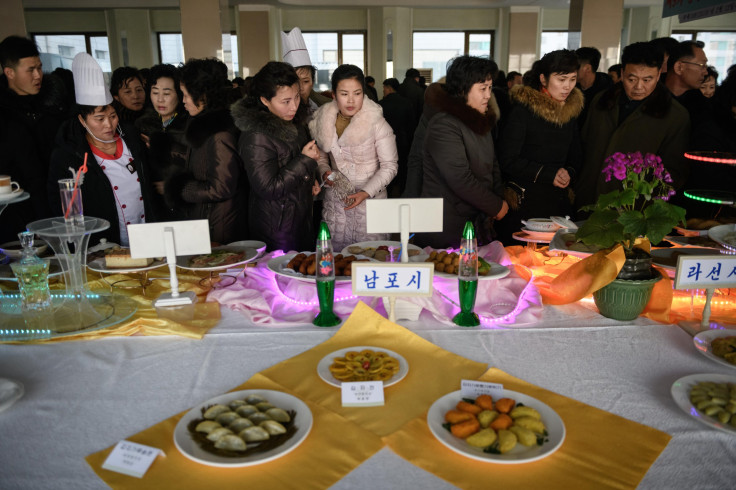North Korea - US Relations: Ahead Of Summit, DPRK Claims Food Shortages Due To Weather, Sanctions

With another summit with the U.S. looming, North Korea this week claimed that sanctions and recent natural disasters have significantly decreased the country's food supply amid pleas for help from international organizations.
A memo obtained by NBC News from North Korea's U.N. ambassador revealed that a food shortage has forced a significant cut in food rations.
The memo blamed record summer temperatures for a severe drought, followed by "severe floods" in "major agrarian areas." It also cited "the sanctions regime restricting the delivery of farming materials" as a contributing factor to the food shortage, acknowledging trade sanctions due to North Korea's nuclear programming.
"All in all, it vindicates that humanitarian assistance from the U.N. agencies is terribly politicized and how barbaric and inhuman sanctions are," the memo reads.
North Korea's claims are difficult to verify due to the country's long commitment to secrecy.
Strict interpretations of U.N. sanctions and operational obstacles have reportedly slowed humanitarian aid from relief groups. The U.N. Office for the Coordination of Humanitarian Affairs’ Financial Tracking Service noted that humanitarian aid to North Korea has dropped from $117.8 million to $17.1 million in 2018.
The World Food Program, the food assistance branch of the U.N., released a report in 2018 that 10.3 million people, or about 40 percent of the country's population, are undernourished.
North Korea's last major food crisis occurred between 1994 and 1998, which was believed to be due to a loss of Soviet support and a combination of natural disasters, resulting in anywhere between 240,000 to 3,500,000 famine-related casualties.
The memo comes ahead of a second U.S.-North Korea summit scheduled for Feb. 27 and 28 in the Vietnamese capital of Hanoi and with the Trump administration committed to striking a deal to get North Korea to dismantle its nuclear program.
"The United States is going to continue to keep pressure and sanctions on North Korea until we see fully and verified denuclearization," White House press secretary Sarah Huckabee Sanders said in January.
In a historic summit, President Trump and North Korean leader Kim Jong Un in June signed an unspecified document that pledged "to work toward complete denuclearization of the Korean Peninsula."
The has long been skepticism that North Korea would abandon its nuclear weapons program because it serves as a bargaining chip for economic benefits.
© Copyright IBTimes 2025. All rights reserved.





















